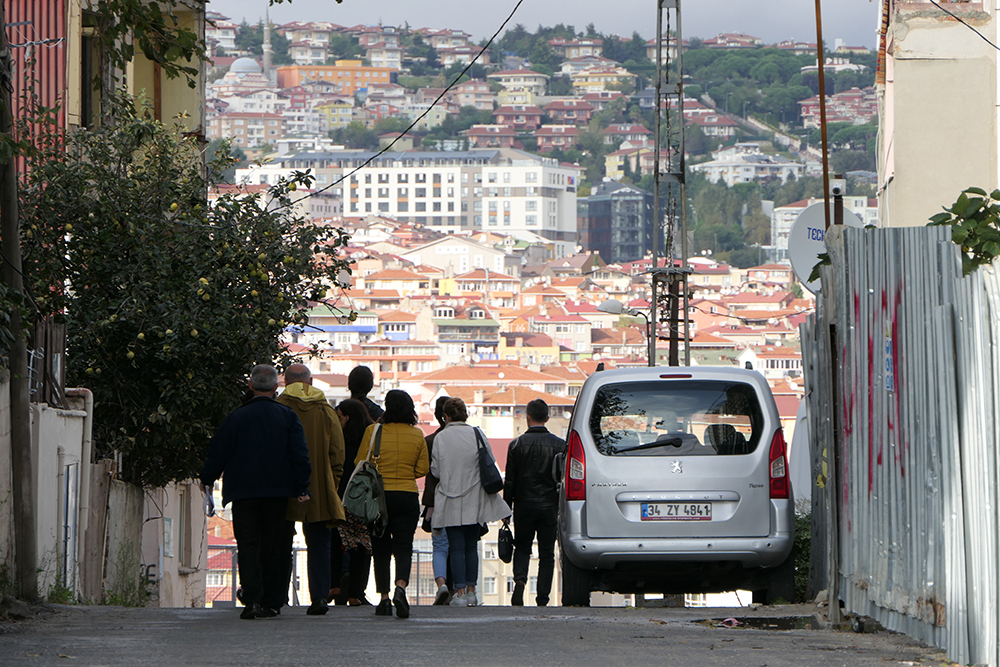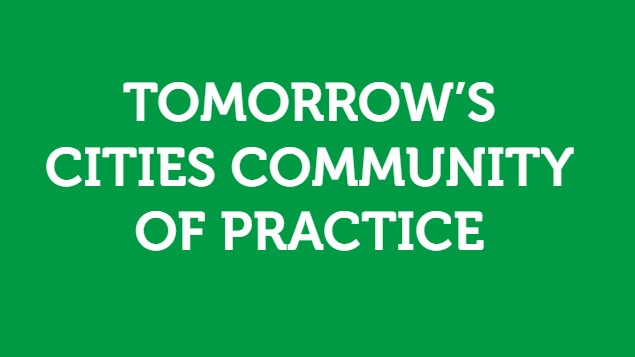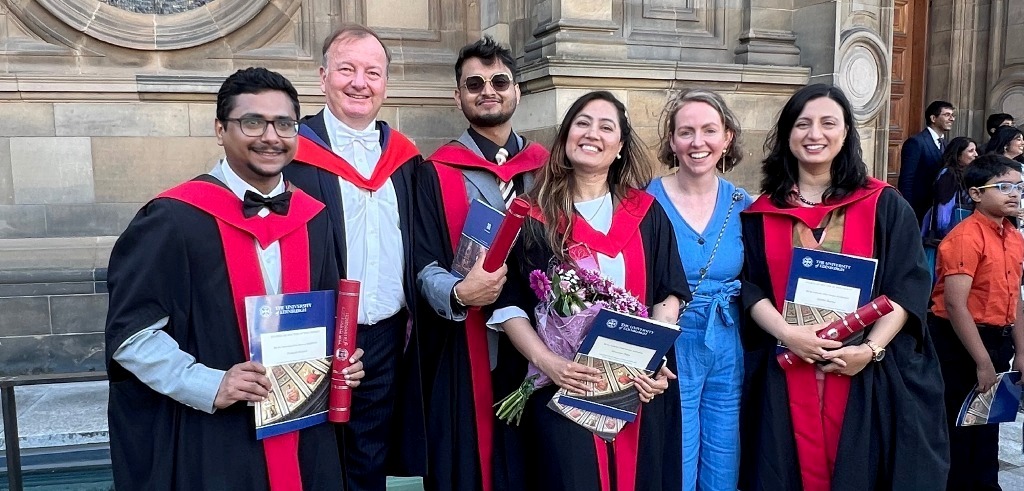
- Close
30/10/2020 | Global
World Cities Day: Co-producing research to reduce disaster risk in Tomorrow’s Cities

31 October is World Cities Day (WCD), designated by the UN to promote the international community’s interest in global urbanization, push forward cooperation among countries in meeting opportunities and addressing challenges of urbanization, and contributing to sustainable urban development around the world.
For 2020 the theme of WCD is “valuing our communities and cities”. The WCD website says:
Community value encompasses local volunteering and people organizing in their own neighbourhoods as well as social movements that challenge poverty, systemic discrimination and racism. In informal settlements and slums in particular, communities are making a significant contribution while individual households in urban areas are providing an enabling environment for work and study in the home.
UN-Habitat’s latest World Cities Report reinforces the benefits of cities that engage all stakeholders, including local communities to foster sustainable cities. The Secretary-General has identified cities and communities as being on the frontline of the COVID-19 response. Collectively, we can truly foster sustainable cities for all.
Community activities can no longer be taken for granted or under-resourced. Policy makers and urban managers need to engage communities systematically and strategically in urban planning, implementation and monitoring to co-create the cities of the future.
All Tomorrow’s Cities’ activity is aimed at bringing together communities at risk, community leaders, city authorities and researchers to support momentum towards inclusive, sustainable and resilient urban futures. It is through the combination of new data, understanding, voice and relationships that cities can move from places of risk accumulation to places of risk reduction for the urban poor.
To mark WCD 2020, we spoke to two members of the Hub – Dr Teresa Armijos Burneo (TAB) from Tomorrow’s Quito and Dr Esra Demirkol Colosio (EDC) from Tomorrow’s Istanbul – about how they’re working with local communities in their cities to reduce disaster risk for the marginalised in Tomorrow’s Cities:
TAB: “Quito is growing fast and its geographical position makes it vulnerable to a range of different hazards, including volcanic eruptions, earthquakes, landslide and flooding. We worked with the municipality to identify three suitable communities: a formal settlement on the southern edge of the city which experiences landslides and floods, a community based on the edge of a volcano that is prone to landslides and an informal settlement in an area where the city is expanding – this is very important in terms of understanding how cities are growing and how that generates more risk. We are now in the process of inviting the communities to join the project, because it’s important that the decision to take part is a mutual one.
EDC: “In the 50s and 60sm there were a million people in Istanbul. Now there is almost 20 million. The city is rapidly expanding, generating new risks for communities, in the same way Teresa describes. We have to talk to the communities exposed to risk and experiencing difficulties to learn from them about how we can be better prepared for hazards.
“We aren’t quite as advanced as the Quito team, in that we haven’t yet begun speaking to the communities we will work with because of Covid-19. We’ve been working with the municipality and state to gather information from people and organisations already active in communities around Istanbul. We are working to identify two or three communities to invite to join the project.
“Most communities in Turkey have a Muhtar – a leader of a neighbourhood or local area – who will be key contacts for us. We will also have different stakeholders in the field. Through developing these networks we will be able to properly engage and understand the communities we are working with.”
TAB: “In Quito we are working with the local ‘Presidentes’ (Community Council Leaders), who have been elected by their community. Any research, especially any research that would like to generate impact and change, cannot be done without working with those who live and experience risk on a daily basis. We are very interested in learning about the experiences of those who live at risk – what’s it like to live in these places, exposed to multi-hazards? To experience marginalisation and lack of access to resources?
“Also, we recognise the communities’ capacity to respond to risk. Communities in Quito carry out local maintenance work, when people come together to build a road or fix something. They call this ‘minga’, which is a traditional Andean way of organising work. That institution is there, that practice is there, what we can do is support the communities so that capacity is used for reducing disaster risk in different ways.”
In this video, César Sangucho, a Community Council Leader from San Luis de Miravalle in Quito, introduces us to his community and the concept of “mingas”.
EDC: “Participatory methodologies are really important – not just parachuting into a community, doing some interviews then leaving. We aren’t going in to ‘teach’ the communities, we’ll be working with them to produce policy ideas for how to prepare for disasters.”
TAB: “We can’t go and say ‘you have to do A, B, C, D’ – people won’t engage with that process. We need to generate a lot of trust and spend a lot of time with the communities. One example of how we’re going to co-produce research is through citizen science – understanding more about the hazards in an area using low-cost sensors set-up and monitored by people in the community. We are planning to place pluviometers for example, in order to understand how and when rainfall can trigger landslides. Another example is using arts-based participatory work, which will lead to performances and exhibitions in the community, to open spaces for dialogue around disaster risk. Through this dialogue we hope to co-produce solutions and pathways within each of the communities that would support reducing disaster risk.
“These methods of co-production will generate knowledge but also ensure that knowledge is useful for the community. We’ll learn about how the community has experienced earthquakes, landslides or other hazards they’ve faced within the social and political context of marginalisation and through that process we’ll produce a history of the community which enhances their experiences and demonstrates their capacities to respond to risk in the long term.”
EDC: “Researchers and policy makers can’t be making decisions on communities’ behalf without learning from them. People have a right to decent living conditions, access to services and decent housing which is prepared for hazards. We need to be talking to both communities and policy makers, and facilitating dialogue in a safe space between those groups. Without having dialogue among different stakeholders, it would not be possible to have proper policies on resilience of vulnerable groups to disasters. This will lead to sustainable urban developments in our cities.”
World Cities Day highlights the importance of Sustainable Development Goal 11, which articulates the ambition to make cities and human settlements inclusive, safe, resilient and sustainable. By co-producing our research with marginalised communities affected by hazards, as well as municipalities, private enterprise and national agencies, we can enhance risk-sensitive development choices, contributing to the achievement of SDG 11.
Click here to find out more about our research approach



